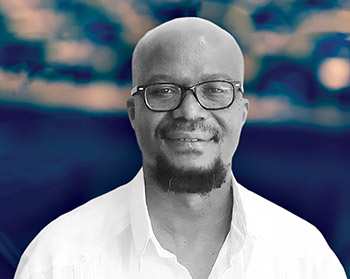Latest News Archive
Please select Category, Year, and then Month to display items
30 October 2018
|
Story Rulanzen Martin
|
Photo Peet van Aardt
 Some of the student writers who contributed to the anthology that tells their stories in Sesotho, isiXhosa, isiZulu, English and Afrikaans.
Some of the student writers who contributed to the anthology that tells their stories in Sesotho, isiXhosa, isiZulu, English and Afrikaans.
How do you transform the higher education curriculum? You involve the exact people the curriculum is intended for. The book, Initiative for Creative African Narratives (iCAN,) illustrates how decolonisation can be achieved through literature for students by students.
iCAN is an initiative by the Centre for Teaching and Learning (CTL) at the University of the Free State (UFS) to mentor students in creative and narrative writing. Under the mentorship of Dr Peet van Aardt, project coordinator, and Ace Moloi, author and UFS alumnus, iCAN Volume 1 was recently launched with 47 short stories written by UFS students.
“The project is a response from the centre for the ever-increasing need for decolonised curricula, steeped in the local cultural perspective of ubuntu,” said Dr Van Aardt.
“This book is an example for how decolonisation can be implemented,” said Prof Francois Stydrom, Senior Director of CTL. The overall aim of the iCAN project is to have the content that materialised from it to be included in the curriculum of first-year students at UFS in the near future.
Book provides multiple voices
Starting in May 2018, CTL presented a series of creative writing workshops on all three of the UFS campuses. “It’s a medium that allows a diverse range of students to express their views and develop their voices as writers,” said Prof Strydom.
It is a form of empowerment, to pass the baton to students to improve the UFS curriculum by writing and publishing their own stories, thereby contributing to larger bodies of knowledge through their lived experiences.
“I believe we as a university need to enable students so that they move away from just being users to becoming contributors to the curriculum,” Dr van Aardt concluded.
Trade unionist brings today’s policy issues to the table
2017-01-02

Sidney Kgara currently heads the public-sector union of
Nehawu’s Policy Unit
Photo: Supplied
Sidney Kgara was appointed to the University of the Free State (UFS) Council in January 2015. He was appointed to the Council by Blade Nzimande, the Minister of Higher Education and Training, in one of three such positions.
Sidney heads the public sector union Nehawu's Policy Unit. The National Health Education and Allied Workers Union is the biggest public-sector union and the biggest union in the public service coordinating bargaining council. It therefore stands to reason that researching and drafting policy on issues such as labour market matters, public health and developments in higher education form the core responsibilities of the unit.
No stranger to university governance and leadership
Nehawu has a number of members working at the UFS and before his appointment, Kgara's only contact with the university was through its UFS members. However, he is no stranger to university governance and leadership. He was a student leader at the University of KwaZulu-Natal in the 1990s and as a result has a broad understanding of student governance and university issues.
"Even though it was a different time and the circumstances were different, there is some sense of continuity to the issues we had to deal with then, and the issues that the university faces now," he says.
Kgara’s unique and valuable contributions to the Council
This, together with his experience in policy and research, enables Kgara to make a unique and valuable contribution to the Council.
Kgara is an avid reader and stimulating his mind through reading makes him truly happy. He also loves watching sport and enjoys socialising with friends.